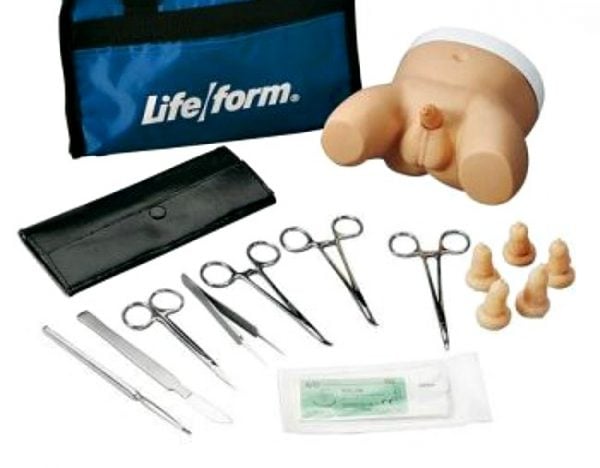Online retail giant Amazon has been forced to pull an infant circumcision training kit, after groups expressed concern it could encourage dangerous DIY procedures.
The Life/Form Circumcision Trainer kits feature surgical scissors, scalpels, a lifelike practice dummy with prosthetic foreskin replacements and instructions, and were being sold on the UK version of the website for between £365 ($636) and £456 ($795).
The description accompanying the product boasts its “pliable, delicate, and realistic” feel, and says it’s designed so that “medical students, physicians, and other practitioners can learn, practice, and improve realistic, hands-on skills for this delicate procedure without the worry of learning on a live patient”.
According to The Independent, the product was removed this week by Amazon following multiple complaints from The National Secular Society.
“We fear that the sale of this product may encourage unqualified practitioners to carry out unnecessary surgery on infants in non-clinical conditions, resulting in serious harm,” chair of the NSS’s Secular Medical Forum, Dr Antony Lempert, wrote to the retailer.
“Non-therapeutic circumcision is unethical and unnecessary and is putting infant boys at risk of death and serious injury. This practice could be encouraged by the morally negligent sale of infant circumcision training kits to the public.”
Similar, less-expensive versions of the kit are still for sale on Amazon UK and US, although none are available for shipping to Australia.


Top Comments
Why did you comment on the ‘findings’ by Dr Brian Morris???
You have presented his research as some sort of conclusive evidence or the state of ‘recent’ research on the topic. Unfortunately Brian Morris is not an objective / impartial source. He is
The consensus of research is that the procedure should not be done unless medically required. And even then as a last resort.
And the studies showing a correlation between circumcision and issues like STDs or HIV is based on third world countries (regions of Africa) that are nothing like the western world where there is widespread sanitation and access to condoms etc.
It’s 2017... how is this still even a discussion?? Imagine if it was a custom to trim a baby girls labia?